Venba is a heartwarming narrative game that provides a window into South Indian culture through the tale of a family’s immigration journey. In this brief interactive story lasting just 1-2 hours, players are immersed in the lives of Venba, her husband Paavalan, and later their son Kavin as they make the life-changing decision to move from India to Canada in the 1980s in pursuit of new opportunities.
The game chronicles their struggles and triumphs across multiple decades as the family tries to adapt to their new home while preserving their cultural heritage. Venba shows the array of challenges immigrants often face, from finding employment and dealing with discrimination to maintaining traditions in a foreign land.
Amidst the hardships, Venba finds solace in cooking traditional South Indian cuisine passed down from her mother. Players help Venba prepare these meals through simple but engaging cooking puzzles where damaged recipe instructions must be deciphered. Combining storytelling vignettes with this tasty gameplay, Venba beautifully celebrates and educates about Indian culture while tugging at heartstrings through its relatable characters.
With its vibrant visuals and music also immersing players in the family’s world, Venba promises an emotional, eye-opening cultural journey condensed into a bite-sized gaming package. It’s a moving interactive story about generational bonds, tradition, and finding a sense of home.
The Beating Heart of an Immigrant Family
At the core of Venba’s narrative is the tale of the titular character Venba, her husband Paavalan, and later their son Kavin. We first meet Venba and Paavalan as a newly married couple living in India who have decided to take the bold step of immigrating to Canada in search of better opportunities. Having heard stories of Canada being a land of abundance, they are filled with optimism about starting fresh in this new country.
The couple settle in Canada, excited by the prospect of jobs for Paavalan as a writer and a better future for the family they hope to start. However, they soon run into the harsh realities many immigrants face. Paavalan struggles to find steady work, as Canadian companies are hesitant to hire foreign writers. Venba grapples with isolation and loneliness as she tries to adjust to customs far different than her own. On top of it all, they deal with prejudice and xenophobia from some resistant to welcome immigrants with open arms.
Despite the mounting challenges, Venba and Paavalan remain resolute in building a life in Canada. Their outlook changes when Venba finds out she is pregnant with their first child. Bringing a baby into their uncertain circumstances awakens new determination in the couple. They redouble their efforts to plant roots in Canada so their child can have opportunities they never had back home.
After the birth of their son Kavin, the story jumps forward in time to Kavin’s childhood. We see Venba and Paavalan now balancing the delicate act of preserving their Indian heritage while also encouraging Kavin to embrace growing up Canadian. Young Kavin takes more readily to hockey and hamburgers than cricket and samosas. Intergenerational tensions simmer as he prefers Canadian pop music and clothes over the cultural traditions so important to his parents.
As Kavin gets older, Venba and Paavalan try to instill Indian values in him by retelling folk tales from their childhood and passing down food recipes from Venba’s family. Kavin humors their efforts, but inside feels the pull of two cultures dividing his identity. Only when he has a child of his own does he gain full appreciation for the immense sacrifices his parents made to give him a chance at new opportunities.
Through multiple time hops, Venba presents a nuanced portrait of an immigrant family navigating all the joys and pains that come with bridging two cultures. Their story brims with relatable humor and warmth, but also the harsh truths of trying to plant roots far from home. We come to intimately understand this family’s struggles with identity, showing how even when cultures may divide generations, food, stories, and traditions can continue to unite them.
Embark on a Cultural Journey with James May: Join James May on his vibrant and humorous exploration of India. Read our in-depth review of James May: Our Man in India for a glimpse into this unique travel series.
Satisfying Puzzles Bring Indian Cuisine to Life
Venba’s light gameplay is centered around cooking traditional South Indian dishes from recipes in a treasured cookbook passed down from Venba’s mother. This tattered book contains all of Venba’s favorite meals, but many of the instructions have been smudged or lost over the years. This results in enjoyable cooking puzzles where players must decipher the clues left behind to accurately prepare each dish.
When cooking in Venba’s kitchen, players will click, drag, and drop ingredients like spices, vegetables, and meats into pans and pots. The recipes don’t give you exact steps, instead providing partially erased guidance that must be interpreted. With trial and error, you’ll discover the correct order and technique for crafting meals like dhosa, idli sambar, and biryani.
There is no penalty for messing up a recipe, allowing a stress-free, experimentative environment. Hints can also optionally be turned on for those who need an extra nudge. While the cooking puzzles are simple, they effectively capture the improvisational spirit of recreating cherished family recipes. The mechanics focus on celebrating the food, not challenging your reflexes.
Beyond the cooking, Venba’s other hands-on elements involve occasional dialogue choices as either Venba, Paavalan, or later Kavin. These range from heartfelt conversations to silly family arguments, letting you modestly steer the direction of scenes. While your choices don’t drastically reshape the story, they make for nice roleplaying flavor.
Between cooking sessions and dialogue options, Venba’s gameplay is thoughtfully restrained rather than overbearing. The mechanics act as a satisfying vehicle for the cultural storytelling, without overshadowing the message of family and tradition at the game’s heart. They capture the emotion behind food without being punished for imperfect dishes, inviting players into Venba’s world with accessibility and warmth.
A Feast for the Senses
Venba thoroughly charms the senses with its colorful, stylized visual presentation and excellent music. The graphics utilize a vibrant watercolor-inspired aesthetic to bring both characters and environments to life. Gentle, swirling backgrounds evoke the heat and commotion of India as well as the muted cool tones of Canadian suburbs.
The characters themselves are designed with exaggerated, cartoon-like proportions. Venba’s sari flows elegantly as she cooks while young Kavin’s oversized hockey helmet and stick underscore his assimilation to Canadian culture. The visuals inject warmth and personality into the family.
Just as impressive are the detailed depictions of meals like dosas, vadas, and biriyani rice. Ingredients are realistically rendered with polygonal textures to mimic the imperfect shapes of natural foods. Despite the cartoon shading, the care given to representing dishes authentically enhances the cultural weight behind their preparation.
When the sizzle of cooking starts, atmospheric music with South Indian rhythmic and melodic influences seamlessly creates an inviting mood. The soundtrack infuses scenes with a nostalgic wistfulness, enhanced by ambient tones of birds and city sounds. Instruments like the veena lute provide an authentic regional flair.
Culinary sound effects like chopping knives and bubbling stews also enliven the kitchen. The attention given to sounds like oil crisping as papadum bread fries makes it easy to get lost in Venba’s delectable atmosphere.
Both visuals and audio work harmoniously to deliver players into an Indian cultural experience exploding with color, energy, and emotion. The senses are continually engaged and transported, whether appreciating the striking colors of Venba’s sari, the driving melody of sitars, or the aromatic crackle of cooking spices. Venba is a feast for the eyes and ears from start to finish.
Shortcomings of a Compact Experience
While Venba succeeds as an impactful, culturally-immersed experience, its compact scale leads to some shortcomings. At just 1-2 hours long, it is easily finished in a single sitting. This brevity may disappoint those hoping for a deeper dive into the family’s generations-spanning story and Indian cuisine. However, the concise runtime likely stems from Venba’s indie origins, and helps it retain a focused emotional core.
The simple cooking puzzles also falter as the game goes on. Early recipes provide satisfying challenges in deciphering cryptic instructions, but this interpretive freedom gives way to hand-holding step-by-step guidance. The trial-and-error of preparing dishes becomes repetitive without new twists introduced. More complex culinary challenges could have maintained engaging experimentation from start to finish.
In conveying its intergenerational family drama, Venba’s dialogue sometimes feels too overt in announcing characters’ emotions rather than implying feelings organically. While conversations efficiently propel the story forward, they lean into clichés about immigrant experiences instead of finding more nuanced angles on cultural identity issues.
Venba admirably spotlights Indian cuisine but could have provided even greater educational value through real historical insights into the regional dishes featured. Besides a barebones recipe list, there is little context about the cultural heritage behind the food. This feels like missed opportunity given the title’s goals of cross-cultural teaching.
While Venba tells its Specific story well, the overarching narrative of immigrant struggles unfortunately covers rather familiar ground. From culture clash with children to workplace discrimination, the story beats follow predictable rhythms. By diving deeper into its individual characters, Venba could have brought greater novelty to its themes.
Despite these weaknesses stemming from its compact scale, Venba remains an enjoyable and touching game. The flaws only highlight areas for potentially deeper exploration in future titles dealing with cultural stories.
Accessible Family Bonding
Venba excels at providing accessibility for a broad audience to engage with its heartwarming tale. The controls required for the cooking puzzles are simple and intuitive, using only basic dragging motions and button presses to prep ingredients. There are no finnicky gestures or quick reflex actions needed, allowing players to focus on the story rather than controlling mini-games.
For those who need it, Venba includes a hint system to offer guidance when deciphering unclear recipe steps. Directions can be revealed one at a time, preventing total handholding while still assisting progression. Venba also avoids punishing players for cooking mistakes, encouraging stress-free experimentation and reattempts.
Beyond the relaxed gameplay, Venba ensures its narrative reaches players through subtitles accompanying all spoken dialogue. Players hard of hearing can follow the family’s conversations and voiceover cooking instructions. These options allow Venba’s touching generational story to be accessible for players of all abilities.
Through its smartly minimalist controls, helpful hint features, and subtitles, Venba removes potential barriers that could obstruct connecting with its memorable characters and culture. The game openly invites a broad audience to share in an immigrant family’s intimate journey finding its place in a new world. No matter their background or ability, Venba delivers its universal themes in an accessible package.
An Intimate Look at the Immigrant Experience
While not without some flaws stemming from its compact scale, Venba provides a memorable interactive storytelling experience that intimately humanizes the challenges faced by immigrant families. It celebrates South Indian traditions through the tale of three generations trying to maintain cultural identity after moving to 1980s Canada.
The concise cooking puzzles innovatively share culinary heritage in an accessible, engaging way. Following damaged family recipes not only educates about Indian cuisine but also connects players to the memories and bonds food represents. The music and art create sensory immersion in Venba’s world, from the vivid spice markets of India to the sterile ice rinks of Canada.
Most impactfully, Venba delivers a relatable family story spanning decades of hardship but also joy. The writing and animation bring dimensional life to the characters, making their struggles resonate universally even if one hasn’t shared the immigrant experience. Venba movingly shows how tensions can form between generations and cultures, but love and traditions never lose their power to unite.
While at times overly straightforward in its dialogue and themes, Venba still succeeds as a heartfelt glimpse into the intimacies of immigrant family life. It excels at celebrating diversity, spotlighting an underrepresented perspective in gaming. Theinteractive cooking rituals provide a novel vehicle for cross-cultural education. While brief, Venba leaves an impression through its universal story, inviting players to better understand the early challenges faced by immigrant communities worldwide.
The Review
Venba
Venba serves up a satisfyingly flavorful narrative experience that thoughtfully celebrates South Indian culture through the tale of a family adapting to a new home in Canada. Its brief but moving story is enhanced by innovative cooking puzzles that provide hands-on lessons in Indian cuisine traditions. Although the compact runtime results in some repetitiveness and missed opportunities to dive deeper into its characters and subject matter, Venba remains an accessible and eye-opening glimpse into the intimate struggles and bonds within an immigrant family. Transporting players into a detailed cultural setting through its art, music, and symbolism of food, Venba succeeds as an impactful interactive story. It delivers a universal message about family perseverance and preserving identity across generations and borders. For its innovations in accessible cultural storytelling and shedding light on underrepresented perspectives, Venba earns a recommendation to all who enjoy thoughtful narrative experiences.
PROS
- Touching, relatable story about an immigrant family told over multiple generations
- Innovative cooking puzzle gameplay provides hands-on cultural education
- Vibrant, stylized visuals bring environments and characters to life
- Excellent soundtrack and sound design for immersive atmosphere
- Celebrates and spotlights South Indian traditions and cuisine
- Accessible gameplay and controls suitable for wide audiences
CONS
- Fairly short runtime around 1-2 hours
- Cooking puzzles become repetitive and lose challenge over time
- Story covers familiar ground about immigrant experiences
- Dialogue can feel overly direct compared to subtle showings of emotion
- Lacks deeper educational context about cultural backgrounds of dishes
- Follows predictable narrative beats about culture clashes
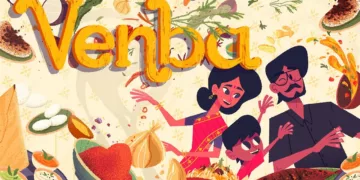







































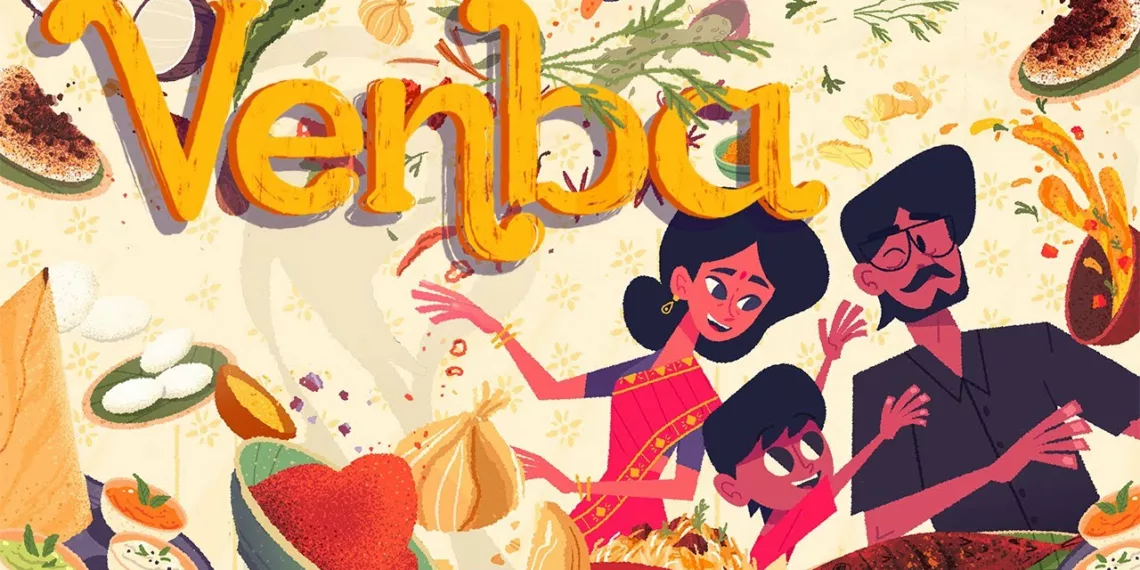
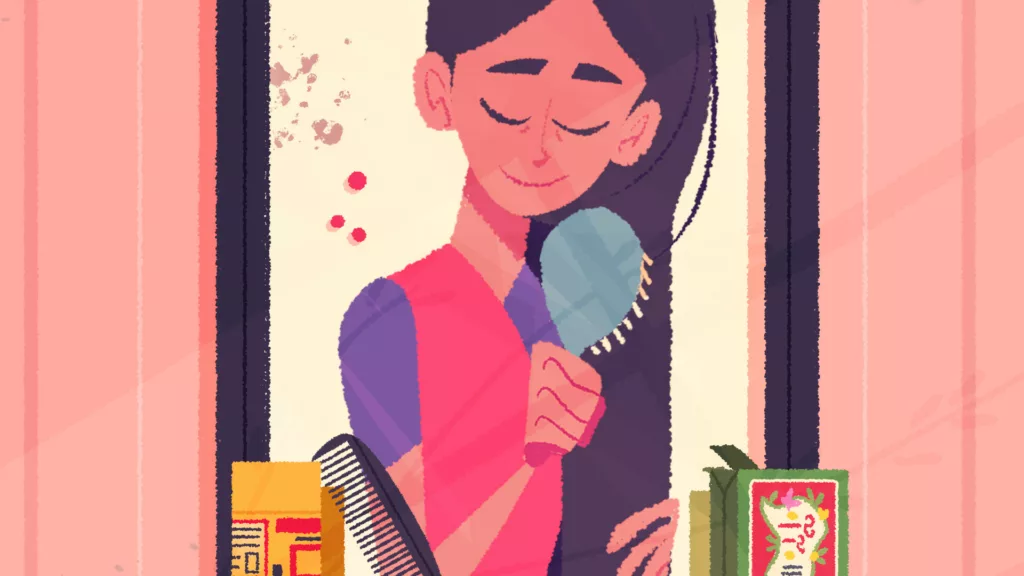
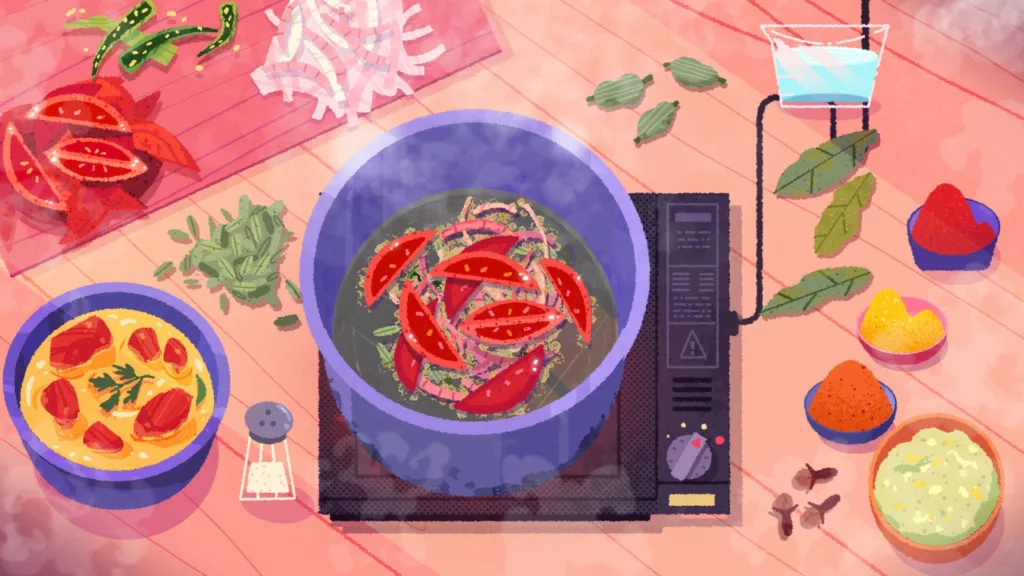
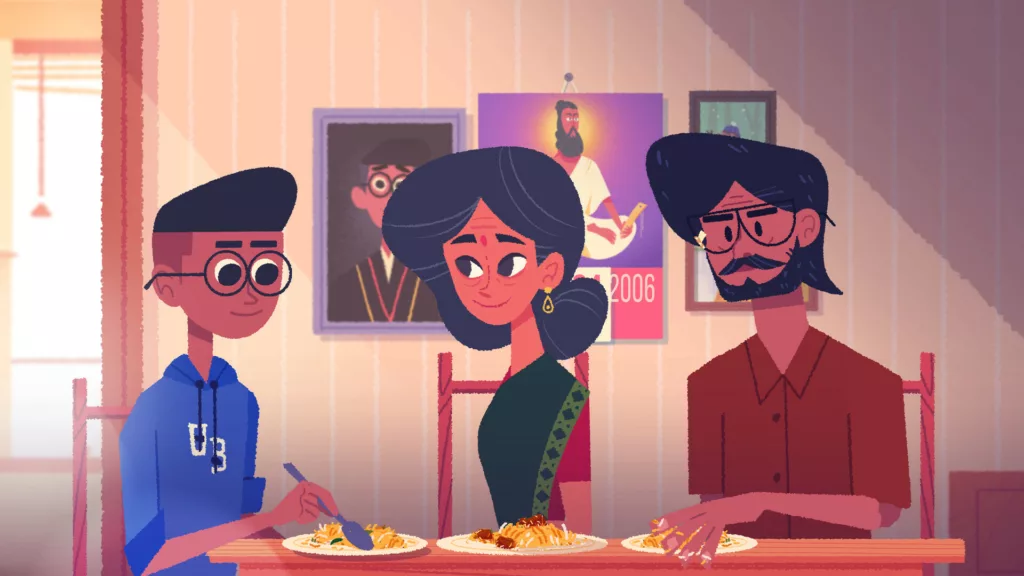
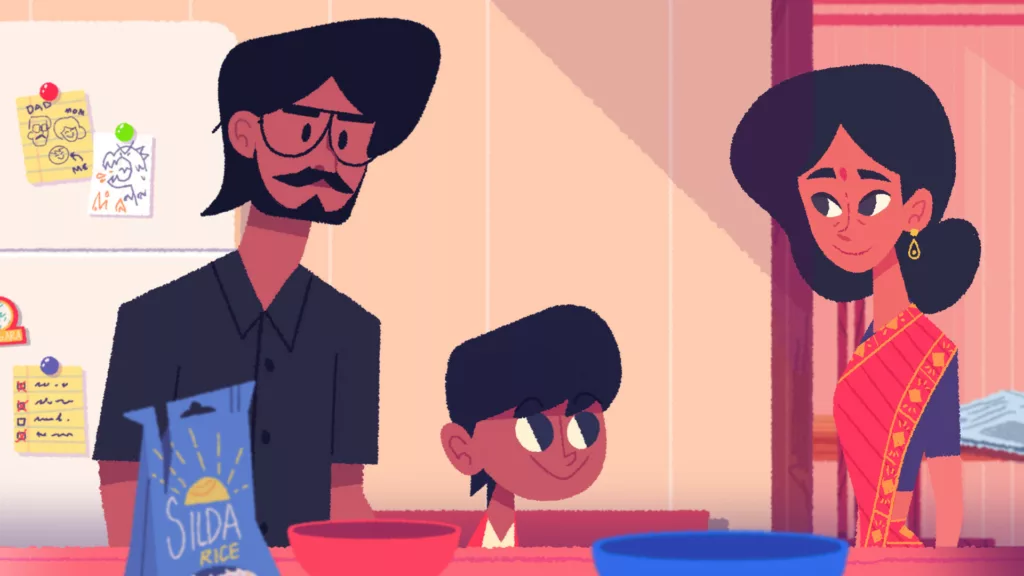

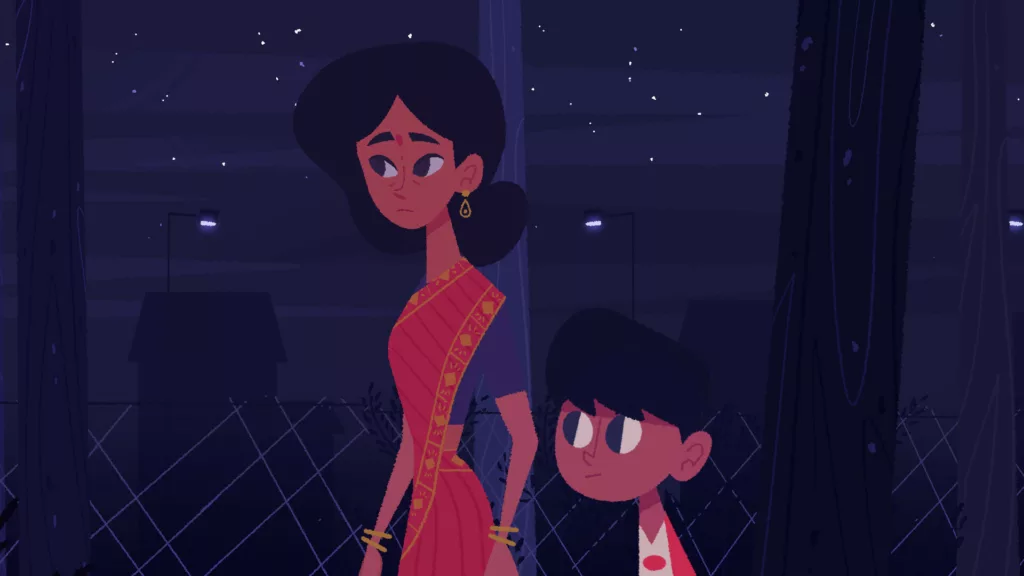








Discussion about this post